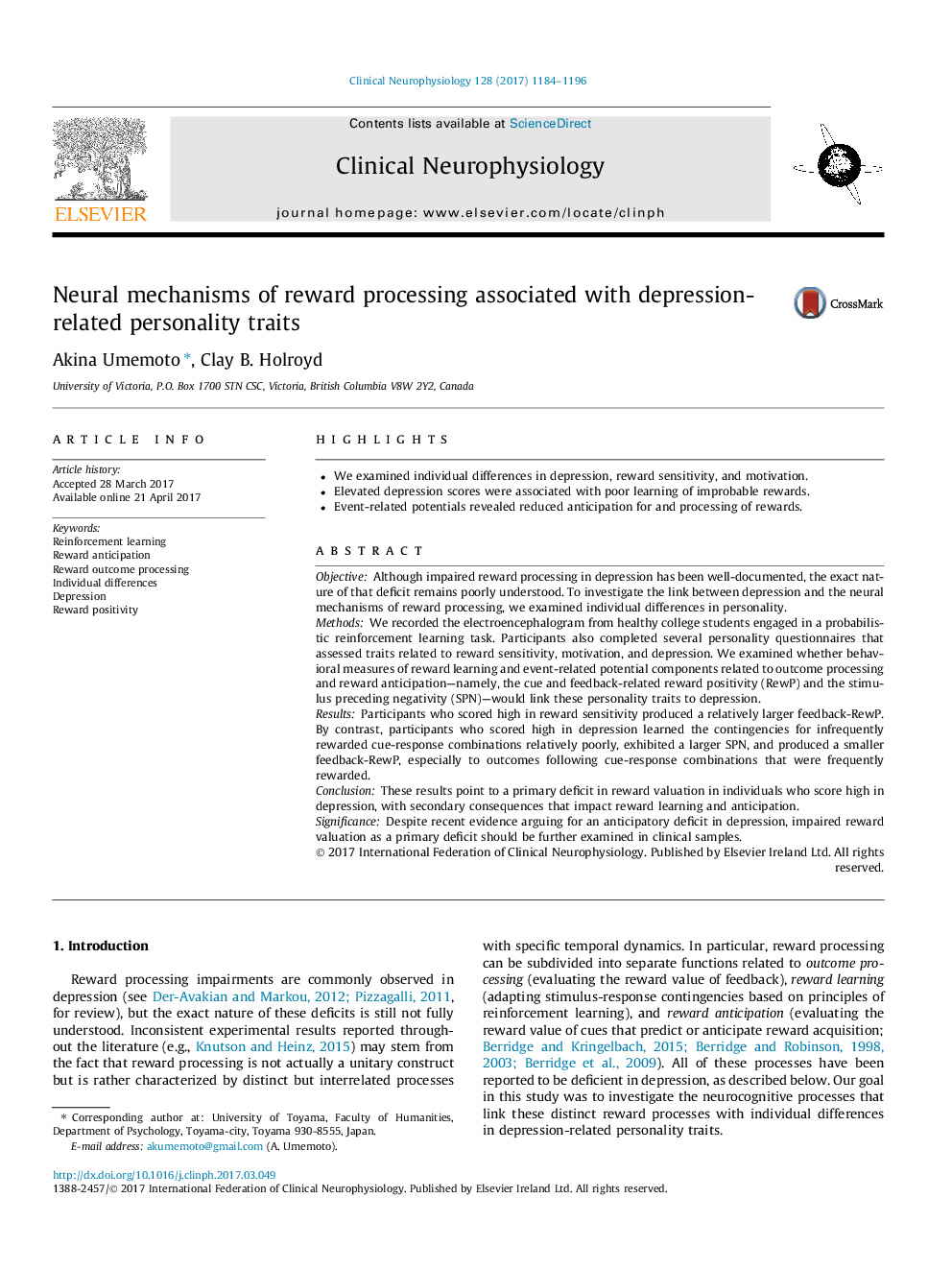| Article ID | Journal | Published Year | Pages | File Type |
|---|---|---|---|---|
| 5627830 | Clinical Neurophysiology | 2017 | 13 Pages |
â¢We examined individual differences in depression, reward sensitivity, and motivation.â¢Elevated depression scores were associated with poor learning of improbable rewards.â¢Event-related potentials revealed reduced anticipation for and processing of rewards.
ObjectiveAlthough impaired reward processing in depression has been well-documented, the exact nature of that deficit remains poorly understood. To investigate the link between depression and the neural mechanisms of reward processing, we examined individual differences in personality.MethodsWe recorded the electroencephalogram from healthy college students engaged in a probabilistic reinforcement learning task. Participants also completed several personality questionnaires that assessed traits related to reward sensitivity, motivation, and depression. We examined whether behavioral measures of reward learning and event-related potential components related to outcome processing and reward anticipation-namely, the cue and feedback-related reward positivity (RewP) and the stimulus preceding negativity (SPN)-would link these personality traits to depression.ResultsParticipants who scored high in reward sensitivity produced a relatively larger feedback-RewP. By contrast, participants who scored high in depression learned the contingencies for infrequently rewarded cue-response combinations relatively poorly, exhibited a larger SPN, and produced a smaller feedback-RewP, especially to outcomes following cue-response combinations that were frequently rewarded.ConclusionThese results point to a primary deficit in reward valuation in individuals who score high in depression, with secondary consequences that impact reward learning and anticipation.SignificanceDespite recent evidence arguing for an anticipatory deficit in depression, impaired reward valuation as a primary deficit should be further examined in clinical samples.
